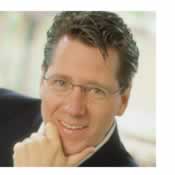“Don’t try to saw sawdust.” Dale Carnegie
“That’s not the way I remember it!” Lauren exclaimed heatedly to her sister, Josey. “How could you think that? About our father?”
Josey narrowed her eyes in anger. It was the first “reunion” she’d had with her three sisters since her parents’ death two years earlier. And this was why. Anytime she tried to talk to Lauren and Annette about their father and the way he had treated them, they could never see eye to eye. It was if her sisters had lived in a different home and hadn’t experienced his cutting remarks. (They called them his sense of humor, his sarcasm, and said that’s the way he related to the others.) It was as if they hadn’t been hurt by him constantly missing their concerts and games. (They said it was because he had a strong work ethic and knew their family needed the money from his overtime.)
So who was right? Who had the real truth? The sisters may never know because they all remember their home life differently. But a kind friend who really cared about Josey finally shared with her what he saw: That she was using her anger against her father to keep her from becoming close to any man. Why? Because she was afraid of being hurt or feeling ignored again. That anger was poisoning her relationship with a man who loved her deeply and wanted to marry her. And it was also poisoning her relationship with her sisters, who longed to invite Josey more often into their homes.
Josey had to make a choice ? to stay rooted in her anger against her father ? or to let her bitterness go and move on, past her past. The choice would not be easy, but it was one she knew she would have to make.
And Josey isn’t the only one who has a choice to make. All of us are shaped by our memories ? whether factual or interpretations. These memories can either help us become individuals who are confident of our significance and our decisions ? or individuals who plod through life, uncertain of our worth, anxious about our present, and too paralyzed to make decisions that could affect our future for the positive.
For this reason we are compelled to include this series of articles on becoming healthy and whole. Why? Because after conducting our own research on personal growth and after surveying a mountain of other studies on mental health, we are unequivocally convinced that if you do not understand how your past ? whether accurately recalled or simply imagined ? is shaping your present, you will forever be stuck in it, never achieving the level of profound significance emotional health requires. As you saw in a previous article, your self-talk is key to reinforcing the love that emanates from a caring God. But if you stop there, without learning to move past your past, you will forever be slowed down on your journey to wholeness. Your proverbial baggage is sure to weigh you down. It will keep you from fully reaching your significance at any meaningful level. Until you learn to move past your past, you will never be able to understand your incalculable value or experience profound significance at your very core.
The bottom line? The healthy person does not dwell excessively on the past. He understands the past, but he doesn’t get stuck in it. So we dedicate this chapter to helping you move past your past so you will more fully embrace your God-given significance. First we’ll identify the elements of your past that are affecting you. Then we’ll talk about why your memories may not be what you think they are. We’ll explain why dwelling on that past can be self-defeating and give you solid advice on how to move on, past your past.
Copyright © 2003 Les Parrott and Neil Clark Warren, used with permission, published by Tyndale House Publishers. Adapted from Love the Life You Live.



 Les Parrott III, Ph.D., is founder of RealRelationships.com and a Professor of Psychology at Seattle Pacific University. He is also co-creator, with his wife Leslie, of eHarmony Marriage. Les is an award-winning author of more than a dozen best-selling books including High-Maintenance Relationships, The Control Freak, 3 Seconds, Becoming Soul Mates, Your Time Starved Marriage and Saving Your Marriage Before It Starts.
Les Parrott III, Ph.D., is founder of RealRelationships.com and a Professor of Psychology at Seattle Pacific University. He is also co-creator, with his wife Leslie, of eHarmony Marriage. Les is an award-winning author of more than a dozen best-selling books including High-Maintenance Relationships, The Control Freak, 3 Seconds, Becoming Soul Mates, Your Time Starved Marriage and Saving Your Marriage Before It Starts.









